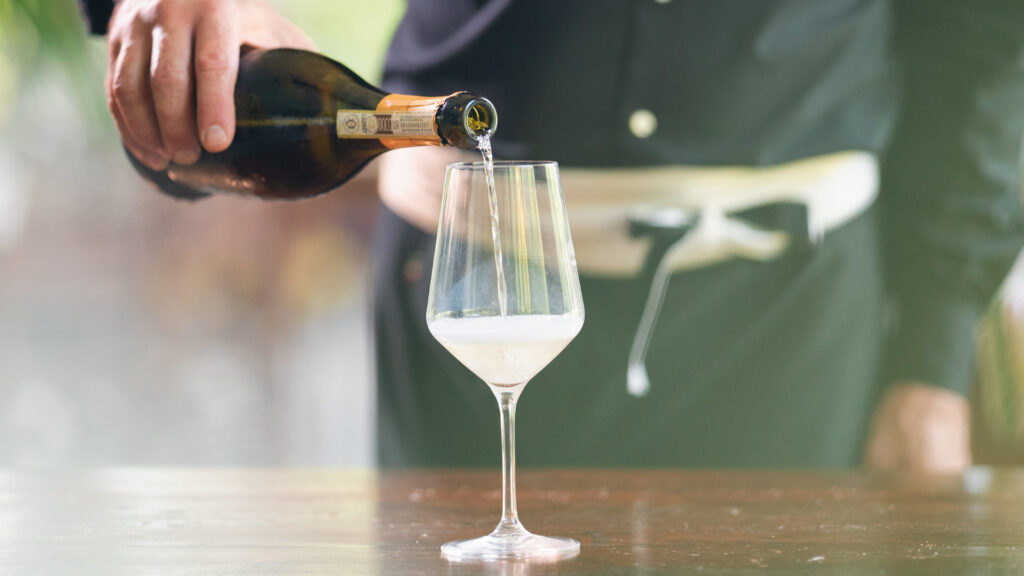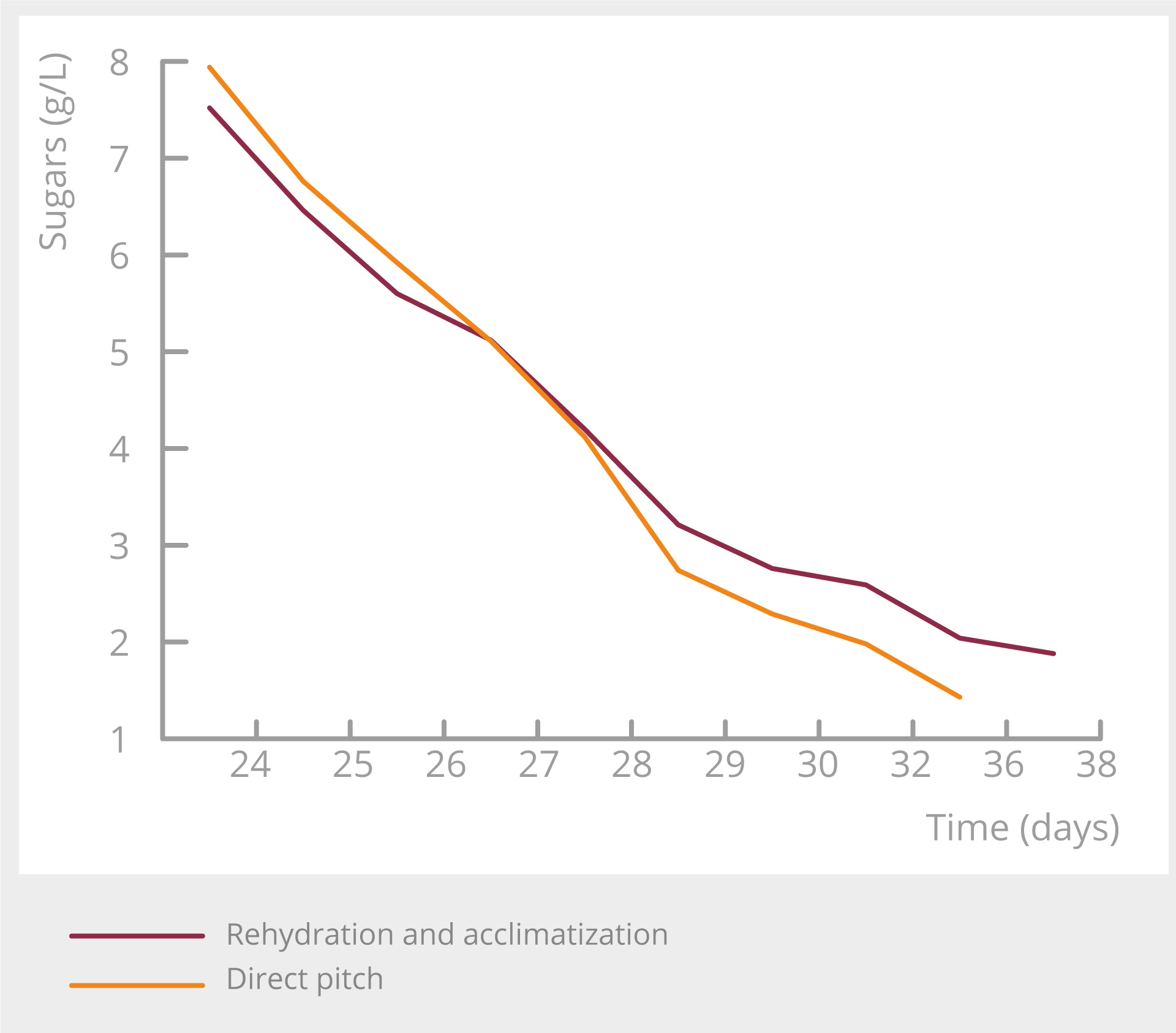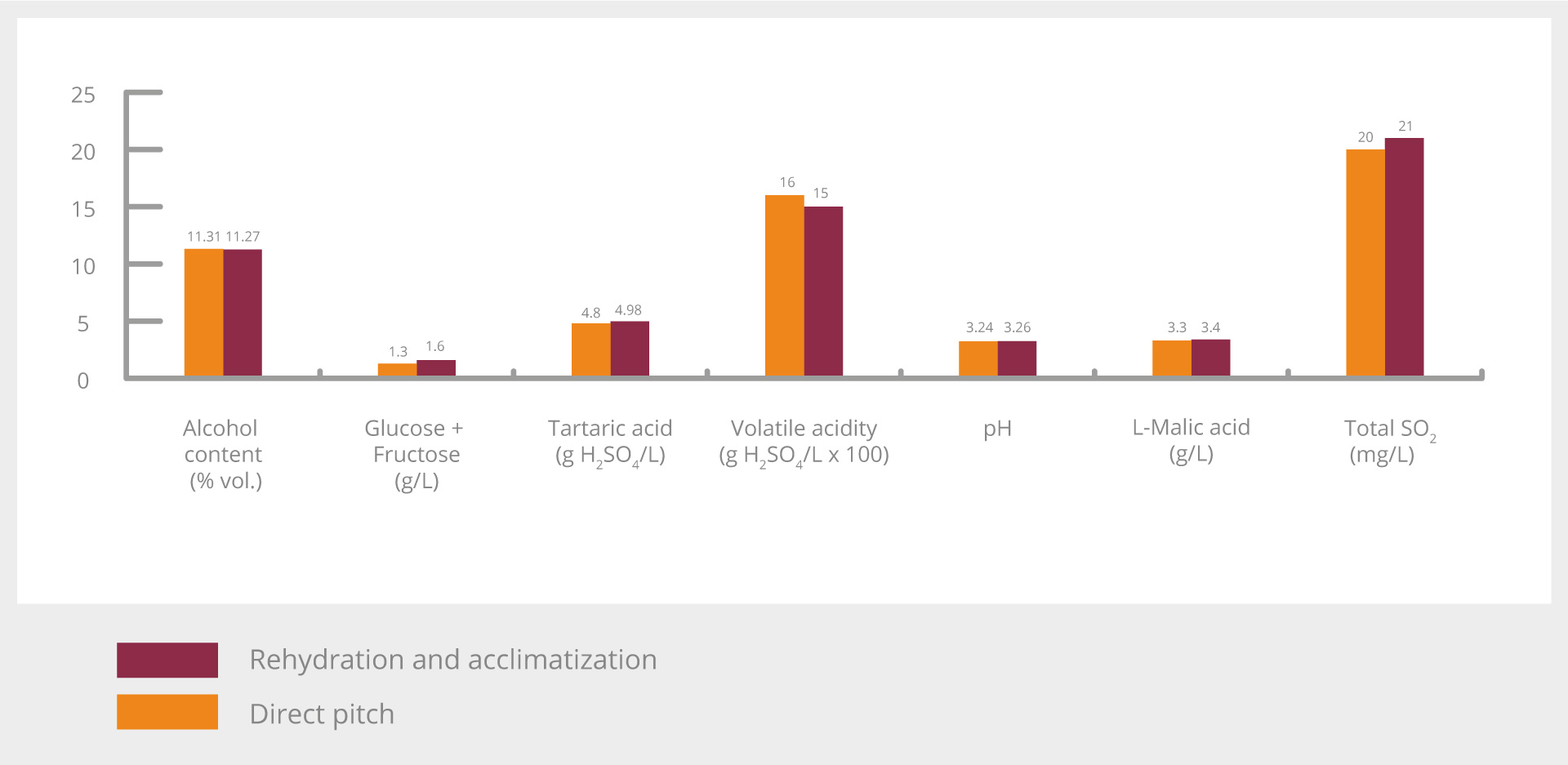Results of SafŒno™ PR-106 E2U™ trials
By Etienne Dorignac, Technical Manager & Oenologist, Fermentis
Is SafŒno™ PR-106 an E2U™ yeast strain?
Quick answer is yes, which means it can be used in a variety of ways – with rehydration – or by pitching it directly into the fermentation vessel. It’s up to you.
Now the long answer is also yes, but perhaps we can go into a little more detail and explain exactly how we tested it, present the results and why we can confidently say SafŒno™ PR-106 is E2U™ (Easy To Use).
These experiments were run on a standard Chardonnay must suited for sparkling base wines, with low pH (<3.2) and a slight YAN (Yeast Available Nitrogen) deficiency (YAN (mg/L) / Sugars (g/L) = 0.7).
The two different experimental conditions were:


Fig 1 – Sugar monitoring at the end of the fermentation
On a technical level when we compare the residual sugars in the wine during fermentation, one notices that despite a slightly slower start, fermentation by direct pitch actually finishes faster.
Both methods successfully complete fermentation, which of course is the expected result. Therefore, regarding fermentation performance results point towards SafŒno™ PR-106 being E2U™.

Fig 2 – Post fermentation analytical profile
Looking at the end of fermentation analyses, it is striking how little difference there is between the two fermentations. All the different criteria are nearly perfect matches.
Alcohol content is identical, glucose and fructose are very close, acidity is identical and total SO2 is very close.
What this graph tells us on a technical view is that the two wines are basically identical. This is another strong indicator that SafŒno™ PR-106 is indeed E2U™.
Tasting results
Triangular tests performed by a trained panel of 14 wine experts do not show any significative difference between the two wines, fermented either by direct pitch or by rehydration and acclimatization.
Conclusion
The various results of this study all point to one clear conclusion. SafŒno™ PR-106 is well and truly E2U™. Fermentation performance is very similar in both conditions (direct pitch vs rehydration with acclimatization).
The finished wines made in these two ways are identical on a technical standpoint.